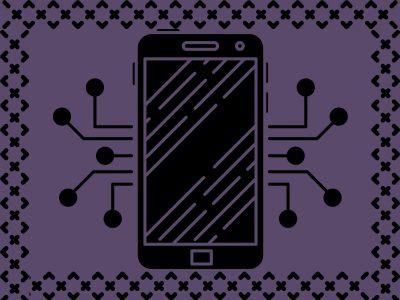Since the early 1990s, there has been a technological revolution unfolding before our very eyes. Today, individuals are more reliant on technology than ever before. A whopping 97% of Americans own a cell phone, and 85% own a smartphone, according to the Pew Research Center.
This progressive trend has arguably provided incredible societal and cultural benefits for the average user — effortless and swift communication with others may promote a feeling of enhanced connection, especially in the current moment.
Moreover, online trends leveraging social media to advocate for civic engagement can be beneficial. However, multiple studies prove that social media and electronic device addiction harms those who succumb to the pressures of obsessive technology.

Phone applications and cellular devices themselves are specifically designed to encourage dependency. For companies such as Samsung and Apple or platforms like Instagram, a successful product is one that keeps its users constantly engaged. Active, constant interaction drives profit.
Thus, cell phones have become an essential part of American life.
In many ways, humans themselves have become semi-bionic creatures. Though a fully bionic creature would have permanent electronic body parts, people today can feel lost and even experience panic and anxiety when they are without their electronic devices.
This trend will probably continue. Already, Elon Musk’s Neuralink Corporation, which is developing neurotechnology for permanent implantable brain–machine interfaces, plans to start testing new technology on humans as early as this year.
Do humans depend on technology too much as is? Studies on app and phone use may argue we do.
Individuals with high social media use actually felt more isolated than others, according to a 2017 study published in the American Journal of Preventive Medicine. In addition, there is an association between passive social media use and symptoms of depression such as fatigue and loneliness, according to a 2019 study published in the Journal of Experimental Psychology.
While the negative effects of prolonged phone and social media usage can have negative consequences on mental health, they can cause

physical musculoskeletal harm as well. A direct relationship was found between phone addiction and neck disability, according to a 2017 study published by King Saud University.
The science is clear: Phone addiction is unhealthy and can be extremely damaging to mental and physical health.
The multiple studies that prove how harmful cell phone addiction is should be alarming. Society is faced with a very problematic paradox: Phones are extremely addictive, people are extremely dependent on them and this dependence can cause harmful disabilities, yet we can’t seem to live without them in the modern technological era.
What should one do about this perplexing issue? Conscious and mindful phone use can provide a useful alternative to the phone use that plagues many Americans.
While it is not the average user’s fault that phones are constructed specifically to induce hyper dependency and fixation, a conscious citizen can resist phone addiction by limiting screen time, turning off notifications and deleting unhealthy applications. In regards to Musk’s Neuralink, one can only hope that such emerging technology will bring some good to humanity.



















































































































